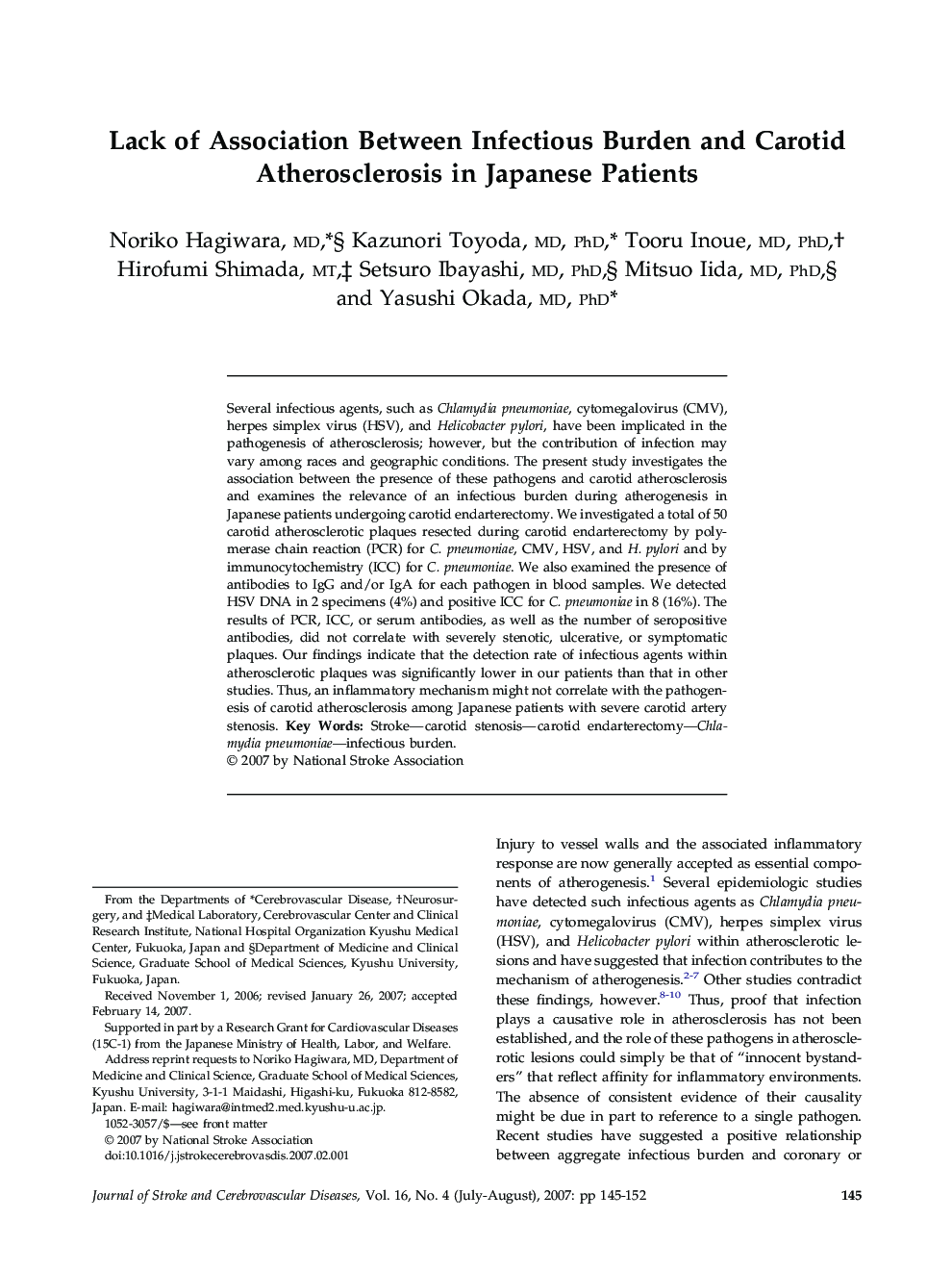| Article ID | Journal | Published Year | Pages | File Type |
|---|---|---|---|---|
| 2703112 | Journal of Stroke and Cerebrovascular Diseases | 2007 | 8 Pages |
Several infectious agents, such as Chlamydia pneumoniae, cytomegalovirus (CMV), herpes simplex virus (HSV), and Helicobacter pylori, have been implicated in the pathogenesis of atherosclerosis; however, but the contribution of infection may vary among races and geographic conditions. The present study investigates the association between the presence of these pathogens and carotid atherosclerosis and examines the relevance of an infectious burden during atherogenesis in Japanese patients undergoing carotid endarterectomy. We investigated a total of 50 carotid atherosclerotic plaques resected during carotid endarterectomy by polymerase chain reaction (PCR) for C. pneumoniae, CMV, HSV, and H. pylori and by immunocytochemistry (ICC) for C. pneumoniae. We also examined the presence of antibodies to IgG and/or IgA for each pathogen in blood samples. We detected HSV DNA in 2 specimens (4%) and positive ICC for C. pneumoniae in 8 (16%). The results of PCR, ICC, or serum antibodies, as well as the number of seropositive antibodies, did not correlate with severely stenotic, ulcerative, or symptomatic plaques. Our findings indicate that the detection rate of infectious agents within atherosclerotic plaques was significantly lower in our patients than that in other studies. Thus, an inflammatory mechanism might not correlate with the pathogenesis of carotid atherosclerosis among Japanese patients with severe carotid artery stenosis.
